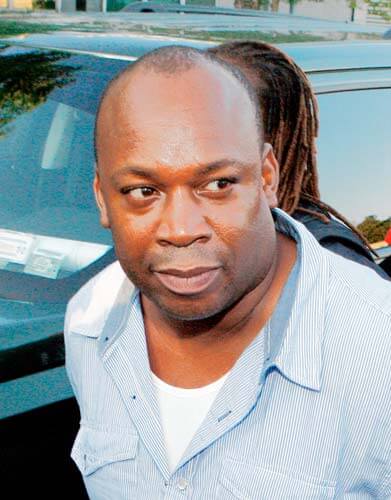Broadway actor Ben Vereen closed out City College’s series of presentations highlighting Black History Month with a talkback topic on “Bert Williams & Minstrels.”
Held Saturday at Aaron Davis Hall, the event offered an opportunity for reflection on the heydays of an era when blackface featured prominently in theater. During that period white actors used black make-up – frequently portraying buffoons – which was intended to mimic African-Americans.
Vereen is acclaimed to be one of the most sought-after motivational speakers in the United States and a proponent of Black history and the arts and education.
He discussed blackface minstrelsy and presented his personal contribution to this controversial theatrical phenomenon.
As part of his presentation, the actor/dancer showed a screening of his portrayal of Bert Williams, the early 20th Century vaudevillian.
Black Theater Fest Lauds “Zora” “Adam” “Barbara”
Black History Month 2012 will be remembered for biographical tributes staged throughout the boroughs to laud the achievements of historical figures who have improved the living condition of African Americans.
With weekly showcases of theatrical presentations touting the illustrious contribution of Renaissance writers, Civil Rights era politicians, pioneering legislators and one feminist activist, The National Black Touring Circuit invited solo actors to speak the stories of their characters.
Directed by Woodie King Jr., the weekly series highlighted history makers A. Phillip Randolph, Zora Neale Hurston, Adam Clayton Powell, Fannie Lou Hamer and Barbara Jordan.
“I, Barbara Jordan,” presented a dynamic look at the first African American woman from the South to be elected to Congress.
Throughout a one-act presentation, actress Toni Seawright celebrated the remarkable life and career of the eminent Texas orator, legislator and teacher.
Jordan was Texas’ first African-American woman state senator.
She became the first African-American woman to deliver the keynote address at a Democratic National Convention in 1976.
“Adam” offered a theatrical tribute to the life of Adam Clayton Powell, Jr., Harlem’s legendary minister and politician. Brilliantly acted by Timothy Simonson, the play is written by Peter DeAnda and directed by Shauneille Perry.
Through dramatization using words and thoughts of the Harlem preacher, the presentation travels from Bimini, Bahamas to the halls of congress to retrace the path the charismatic preacher journeyed from Harlem between 1945 and 1971.
Kim Brockington retraced the life of a renaissance writer.
In a play entitled “Zora Neale Hurston” she honored the famous writer and anthropologist of the Harlem renaissance with a dramatic biography that examines the life and struggles she encountered in the south. The play followed Hurston from the all-Black town of Eatonville, Florida to becoming the first Black graduate from Barnard College in NYC and ultimately into her personal journey as a writer who explored Black folklore and anthropology.
“Zora was ahead of her time. Zora was feisty, fiery, strong, intelligent, bodacious, independent and way ahead her time. She was always authentic, always herself as a Black woman. She loved being Black and couldn’t imagine wanting to be anything but that. She wanted to collect the stories, and ways of her people thought it should be celebrated and not changed and watered down,” Brockington said. “Toni Morrison, Alice Walker, Gloria Naylor who are my writing ‘Sheroes’ would not be who they are or write as they do had not Zora existed! She was the first female Black writer to boldly write about her people exactly as they are–because she felt it was important. They were beautiful and extraordinary as they were.”
At one of the weekend presentation, Hurston’s niece, Lucy Anne Hurston, the author of “Speak, So You Can Speak Again: The Life of Zora Neale Hurston” addressed patrons.
She was three years old when her aunt Zora died in relative obscurity.
Throughout her adulthood she has been compiling a detailed account of the storied life of her revered relative.
Her work as an academic sociologist — with field research in Jamaica and St. Kitts — among other places, she said provides her with a unique connection to her aunt’s perspective and life.
She has been the producer and host of two documentaries on Zora and the director of a high school production of her play “Mule Bone.”
Currently she serves as chairman of the sociology department at Manchester Community College in Connecticut.
“These plays remind us that it’s important to honor the determination and accomplishments of these African American political heroes,” King said.
“Each of them had a major role in changing and impacting American history and culture.”
Catch You On The Inside!

























